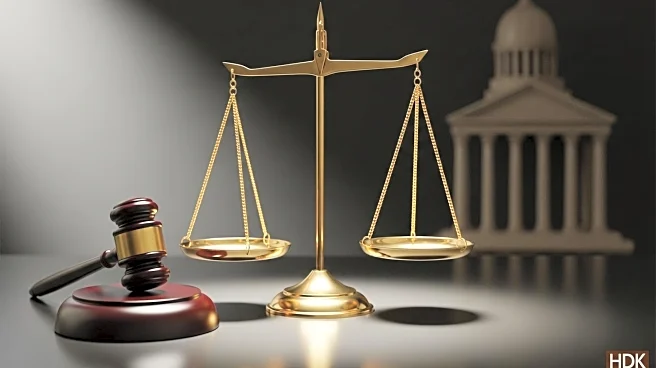What's Happening?
President Trump has signed an executive order that establishes a designation for state sponsors of wrongful detention, allowing the U.S. to penalize countries that illegally detain American nationals or take them hostage. This measure, modeled after the designation of state sponsors of terrorism, provides tools such as sanctions, export controls, and travel restrictions for the State Department to use against nations that exploit detained Americans as political leverage. The order aims to reduce the number of Americans traveling to such countries and to encourage the release of those currently held. The U.S. government does not disclose the number of Americans detained abroad, but advocacy groups report at least 54 Americans were held hostage or wrongfully detained in 17 countries during 2024. The State Department issues travel advisories with four levels of risk, including a 'Do Not Travel' list that cites wrongful detention as a risk in countries like Iran, Afghanistan, Russia, Venezuela, and North Korea.
Why It's Important?
The executive order is significant as it addresses the growing concern over Americans being used as political pawns by foreign governments. By equipping the State Department with tools to penalize such nations, the U.S. aims to deter the practice of wrongful detention and hostage-taking. This move could impact international relations, particularly with countries known for detaining Americans under questionable circumstances. It also highlights the U.S. government's commitment to protecting its citizens abroad and ensuring their safe return. The order may influence travel patterns and diplomatic negotiations, as countries on the 'Do Not Travel' list face increased scrutiny and potential sanctions.
What's Next?
The implementation of the executive order may lead to diplomatic tensions with countries that are identified as sponsors of wrongful detention. The State Department will likely begin assessing nations for potential designation, which could result in sanctions and travel restrictions. This could prompt affected countries to reconsider their policies regarding detained Americans. Additionally, the order may lead to further legislative actions to support Americans wrongfully detained abroad, including compensation measures. Stakeholders such as advocacy groups and families of detained individuals may push for more robust enforcement and support mechanisms.
Beyond the Headlines
The executive order raises ethical and legal questions about the balance between national security and individual rights. It may also influence cultural perceptions of international travel and the risks associated with visiting certain countries. Long-term, this policy could shift diplomatic strategies and impact global human rights discussions, as the U.S. takes a firmer stance against wrongful detention practices.









